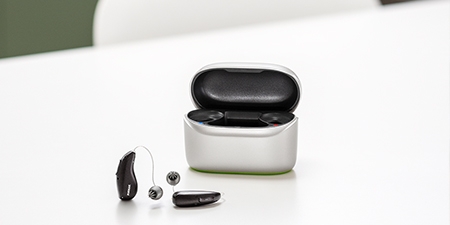What is Audiology: Understanding the Basics

What is Audiology: Understanding the Basics
15 min
Published July 23, 2025
You may be asking yourself, “what is Audiology?” Audiology is a small niche field that most are unfamiliar with unless they need an Audiologist themselves. Despite its discretion the field of Audiology is extremely dynamic and diverse.
Audiology by Definition
The term audiology can be broken up into two subsets of the word, ‘audio’ which means hear, and ‘logy’ which means the study of. So in essence Audiology is the study of hearing and its mechanisms, including balance, as both hearing and balance are controlled by the inner ear.
Audiology has therefore been outlined as the health profession concerned with the prevention, identification, and evaluation of hearing and balance disorders. Audiologists are not only instrumental in diagnosing these disorders, they also provide habilitation or rehabilitation to individuals with these deficits in efforts to improve quality of life.
What type of studies can be done?
The ear is made up of multiple sections including the outer ear, middle ear, inner ear, and the central auditory pathways. Since the auditory system has multiple sections a number of studies are needed to analyze where the hearing or balance deficits are coming from in efforts to establish the appropriate treatment and rehabilitation plan.
Types of Hearing Studies
Types of Balance Studies
Rehabilitation Options
The Audiology Arena
Audiologists can work with varied populations throughout the age range, including pediatric, adult, and geriatric individuals at all stages of development. The environments that audiologists work in are diverse as well and can include:
- Medical centers like hospitals and Ear Nose and Throat (ENT) clinics.
- Rehabilitative centers like nursing homes and homes for the developmentally delayed.
- Educational settings like mainstream public and private schools as well as schools for the deaf.
- Industrial settings, including construction worksites or transportation sites where noise exposure is a risk.
- Corporate environments like manufacturers for hearing aids, implants, and testing equipment.
- Private practice offices that treat ear disorders.
- Federal Agencies like the US army and the Veteran Affairs hospitals.
- College and University settings working as a clinical director, supervisor, or professor.
- Remote Audiology services supporting patients remotely to diagnose or rehabilitate their ear disorders via telehealth and telephonic services.
- Surgical intraoperative monitoring using neurodiagnostic test to monitor the nerves during head and neck surgical procedures.
In all these roles, the goal is unified: to be of service to patients and improve their quality of life by assessing, rehabilitating, and protecting their hearing and balance health.
More information can be found on https://en.wikipedia.org/wiki/Audiology and https://www.asha.org/public/hearing/types-of-tests-used-to-evaluate-hearing/




